Where We Are Not Named
Short Residency
2025
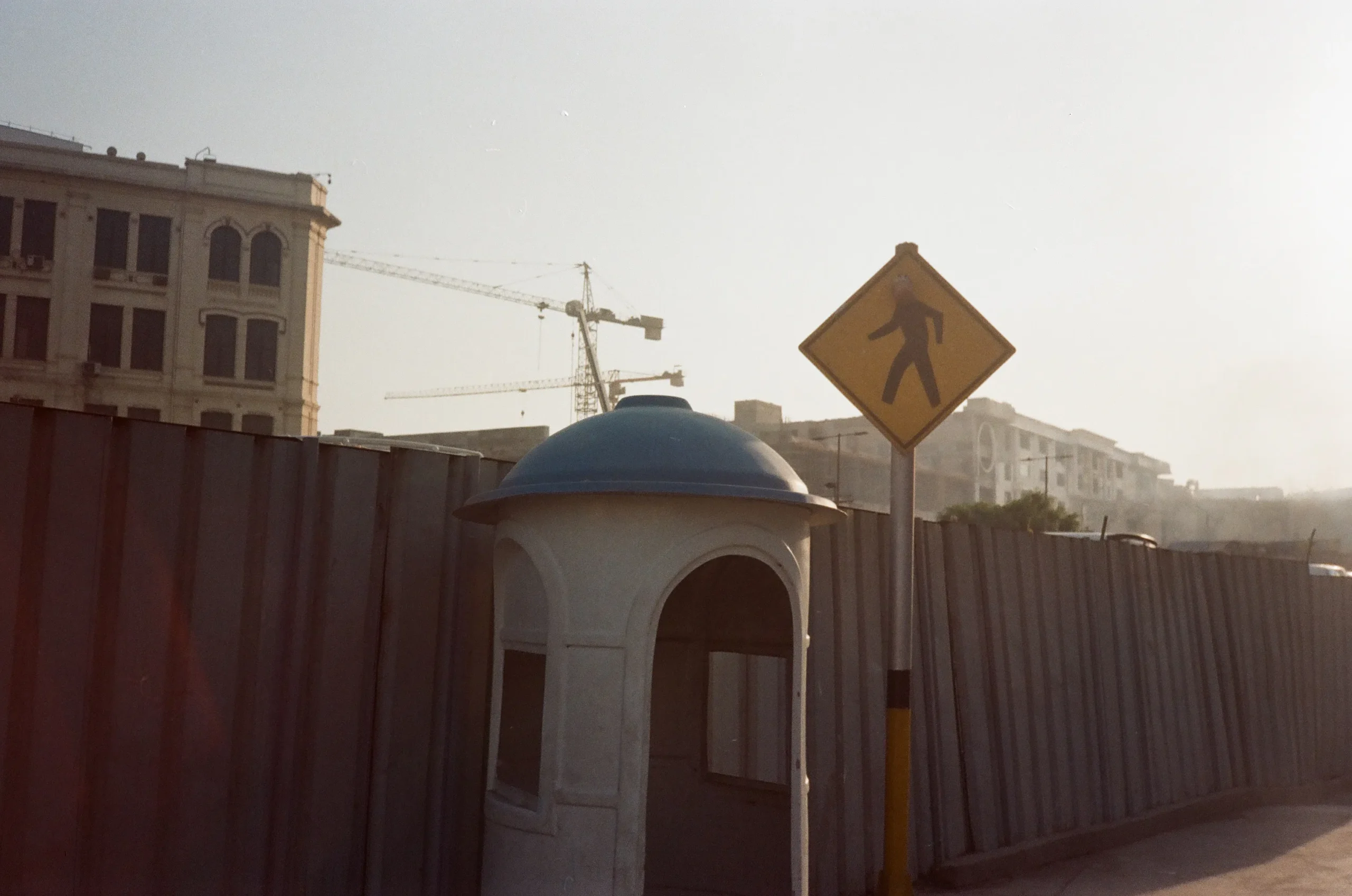
In 2025, The Muse’s work focuses on borders and intersections from its current location in Cairo. In light of the successive crises affecting several countries in the region—such as Sudan, Palestine, Yemen, and Syria—Cairo has become a crossroads for forced displacement, and a site for rethinking the meaning of belonging, homeland, and stability. This short research-based residency aims to create a space for collective contemplation and artistic production, exploring the intricate relationships between cities, identities, and individual and collective narratives through the lens of artists and cultural practitioners.
The proposal revolves around a number of themes, all of which originate from Cairo as a unifying urban location. It uses the city as a point of comparison and reflection for the lives and crises of migrants and displaced people, with a focus on Sudanese and Egyptian communities. The first phase of the project consists of four sessions with diverse topics that align with the theme, tailored by each of our residents.
Resident Artists and Their Sessions:
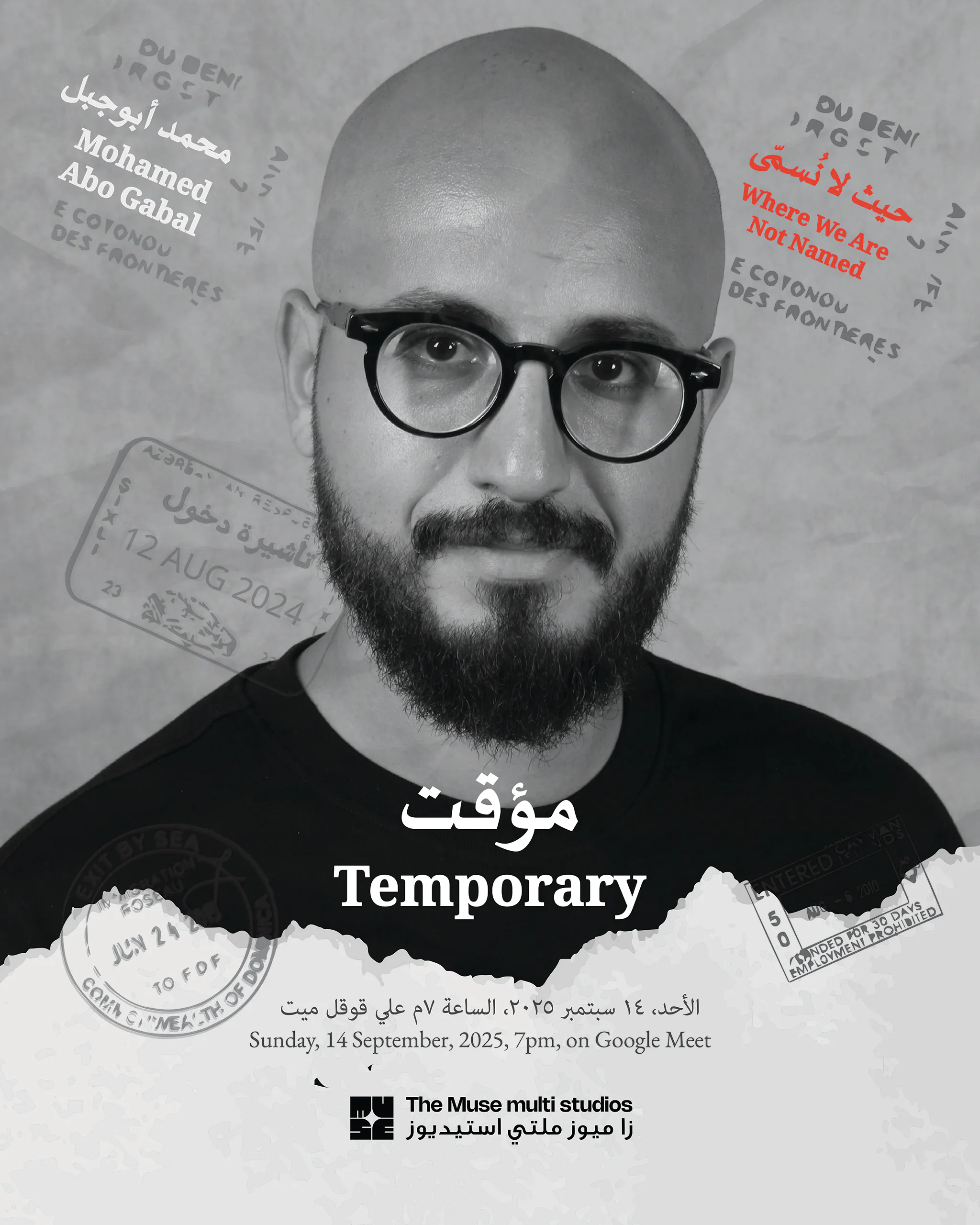
Mohamed AbouGabal
Mohamed AbouGabal (b. 1999) is a self-taught visual artist, curator, and art program manager based in Cairo. His multidisciplinary practice explores conceptual art, archiving, and research in paleontology, zoology, and cultural history. He is founder of the Egyptian Geographical Museum Society and co-founder of the Giza Zoo Collective, reflecting on personal and collective memories of the Zoo. Beginning at Townhouse Gallery workshops, his career grew through curating and managing artistic programs. His work bridges art, science, and social critique. His 2024 exhibition “Mesalah” at Access Art Space exemplified this research-driven approach.
Date: 14 September 2025
Time: 7:00pm Cairo
On Google Meet
Temporary
An independent project, yet it is an extension of a broader initiative that explores the city and its continuous transformations, including security, economic, and social changes. These transformations do not occur in isolation; rather, they are influenced by and intertwined with events in neighboring cities or those that share a similar geographical and human context.
As the city changes, I find myself in a state of continuous transformation. I feel anxious, like my city, and I am constantly searching for ways to escape it and a life characterized by constant fluctuations—ups and downs on all fronts. I navigate an unstable economic and social reality and a job that seems stable but exists in a city suffering from a hidden fragility.
My social relationships, while seemingly complex and interconnected, are in fact fragile, easily broken, and temporary. Even the security situation, which appears stable, carries a constant threat within it, as if stability itself has become a temporary mask. This project is a contemplation on the fragility of stability and on the feeling that everything around me—including myself—is susceptible to change, disappearance, or transition into a new state. It is as if existence itself has become temporary, suspended between what was and what may come.
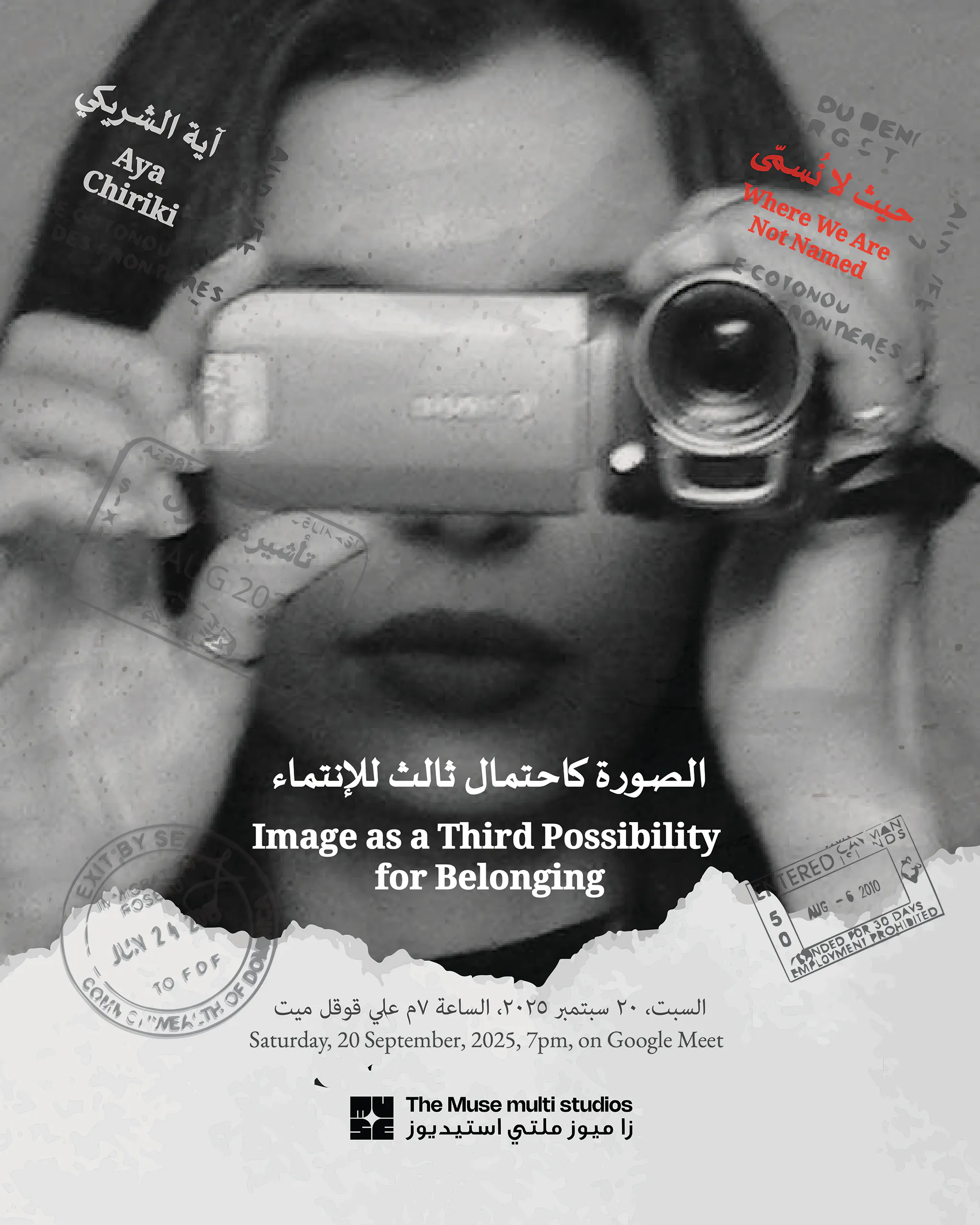
Aya Chiriki
Aya Chriki (b. 1995, Gabès, Tunisia) is a visual artist and PhD candidate in Art History and Fine Arts at Rennes 2, France. Through photography, video, and writing, she addresses exile, gender, displacement, and identity. She won the Photography Prize at Gabès Cinéma Fen (2022), was recognized by ICTJ’s “Outre-mer” (2024), and selected for Tae’thir – Resisting Resignation (2025). That year, she also co-led a Cairo workshop with KalamAflam on home and migration. Since 2018, her work has been exhibited across Tunisia, France, Lebanon, Egypt, the UAE, and internationally.
Date: 20 September 2025
Time: 7:00pm Cairo
On Google Meet
The Image as a Third Possibility for Belonging
This is a virtual/nomadic open studio where the image serves as a method for understanding the host city, for preserving the trace of the original city, as memory, and as a way of constructing a new memory.
Can the image become a place here, a proof that “we passed this way”? Or a third dimension of belonging? Does it transform into a refuge for preserving memory and into a guide that proves our existence? Does it become a reference through which we can retrieve details we were about to lose amid constant movement? Then, can the image be a means of understanding and communicating with the new city, and perhaps an attempt to belong to it? In the journey of exile, do we become more attached to our images than to our places? Does our memory and history transform into a series of images?
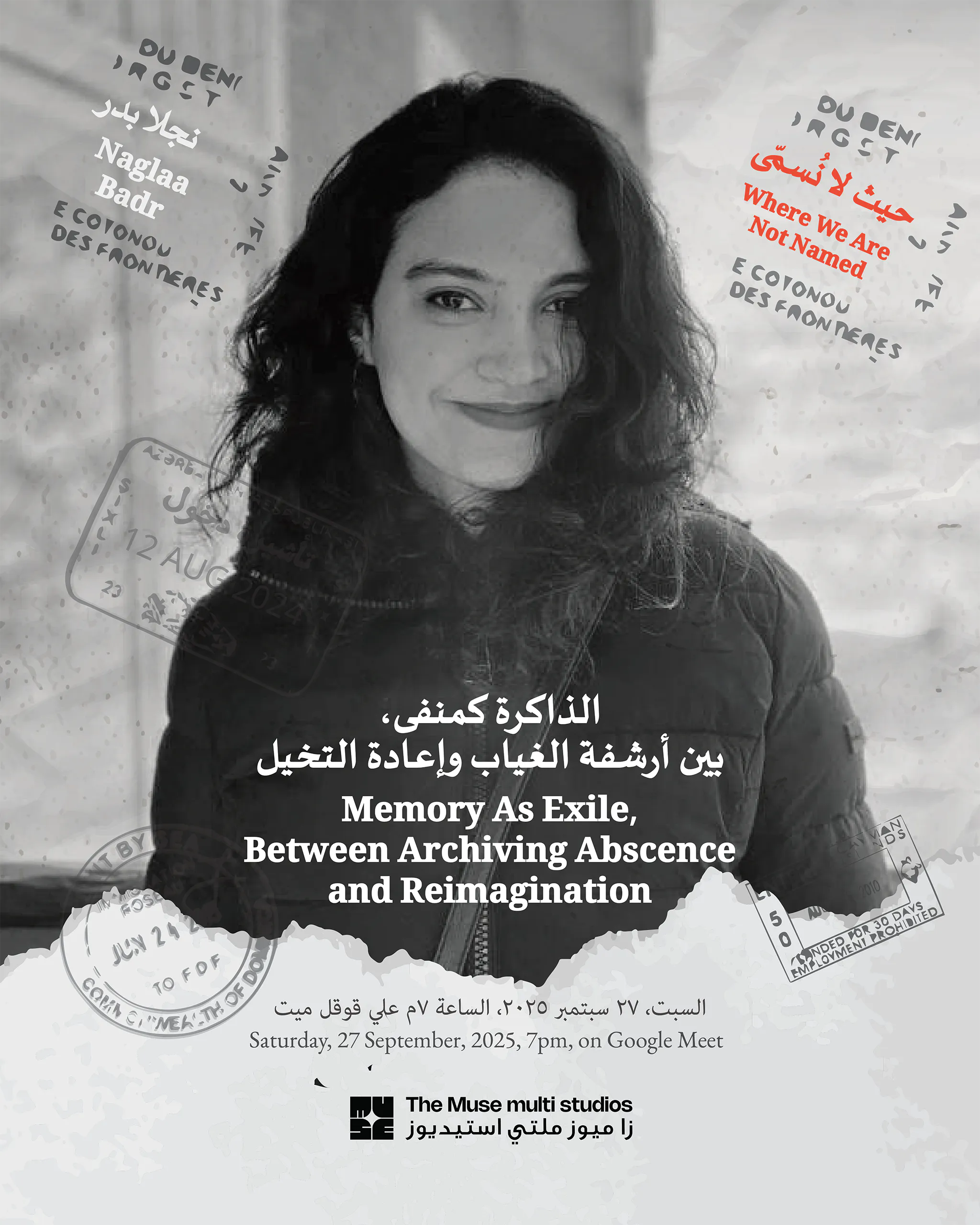
Naglaa Badr
Naglaa Badr is an Egyptian writer and visual artist working across text, image, sound, and objects. A Fulbright Fellow, she studied New Media in the United States and trained at the Arab Image Foundation in Beirut, where her interest in archives and memory began. Her work reflects on memory, displacement, and identity, weaving fragments of personal and collective histories to reimagine belonging and shifting boundaries between public and private. Her practice integrates research and art, reconfiguring narratives through a multidisciplinary engagement with history, objects, and lived experience.
Date: 27 September 2025
Time: 7:00pm Cairo
On Google Meet
Memory as Exile, Between Archiving and Reimagination
The project stems from a personal experience of internal displacement, where memory becomes the sole tool of resistance. In a context where exile—both external and internal—imposes a fragile reality, identity is in a constant state of fluidity. Memory does not function here as a coherent archive, but rather as a discontinuous space oscillating between what we cling to, what we are forced to forget, and what we erase to protect ourselves, driven by integration or other motivations. The resulting hybrid memory and identity lies in the space between… after departure and before arrival.
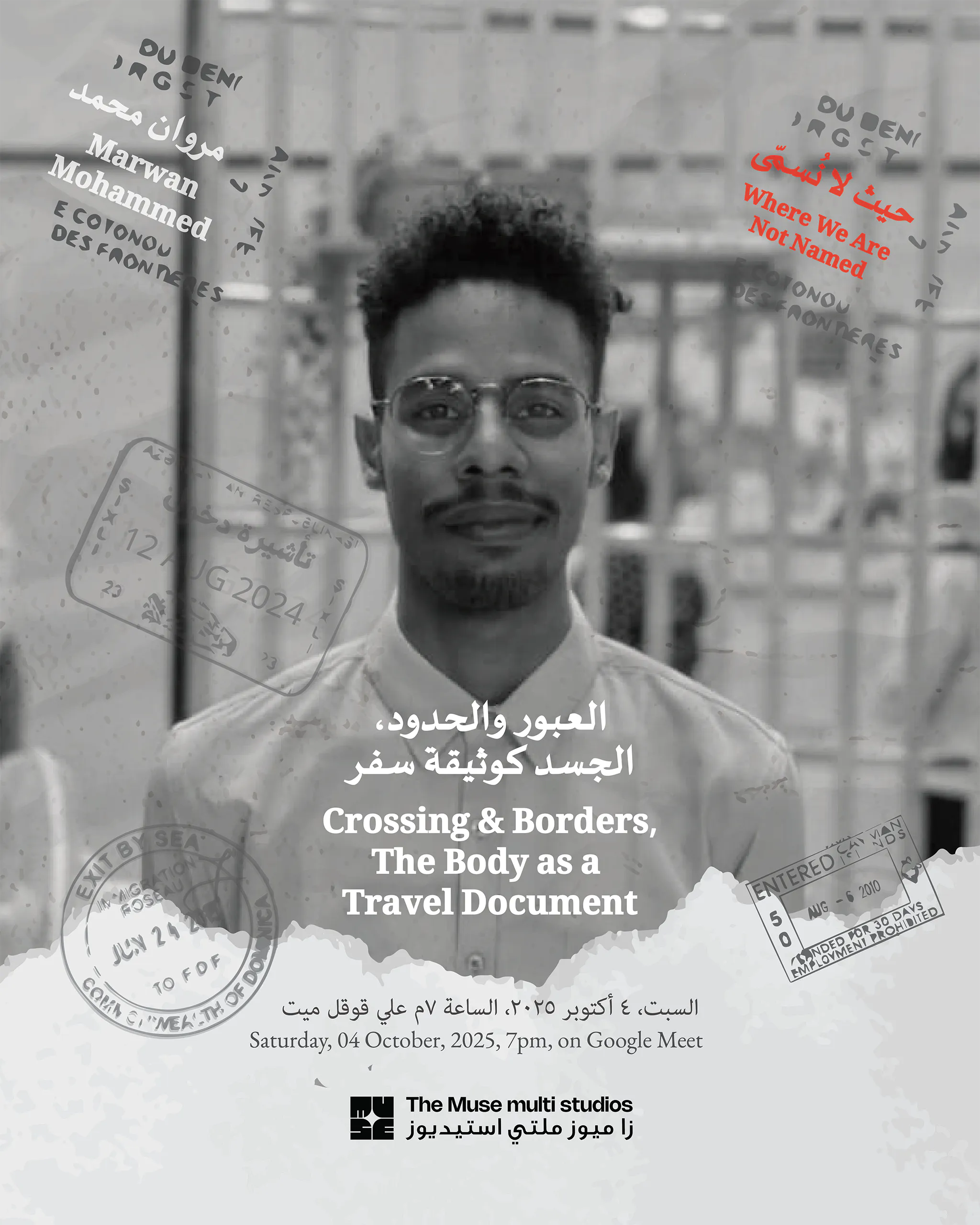
Marwan Mohammed
Marwan M. Hamza is a researcher and data analyst with a background in information technology, working at the intersection of media, research, and cultural programming. At Insights: Sudan Data Program, he leads research and design, producing briefs, analysis, and visual content. He also serves as Programs Manager at The Muse Multi Studios and the Sudan Art Archive, coordinating cultural projects and collaborations. His practice bridges data, storytelling, and design, using tools like Python and Tableau to transform research into accessible narratives that support civic dialogue and social justice.
Date: 04 October 2025
Time: 7:00pm Cairo
On Google Meet
Crossing & Borders, The Body as a Travel Document
The body is the first to experience borders. A travel document may be rejected, but facial features, an accent, or the way one dresses can expose you, isolate you, and determine your fate. Especially during moments of crisis and transitions from one country to another, the body becomes trapped by the standards of surveillance and prohibition.
This theme investigates how the body is tested during moments of forced displacement: from checkpoints to detention centers, and to life in camps or informal settlements. It explores the experience of formal and informal crossings and borders. How is the movement of bodies controlled?
